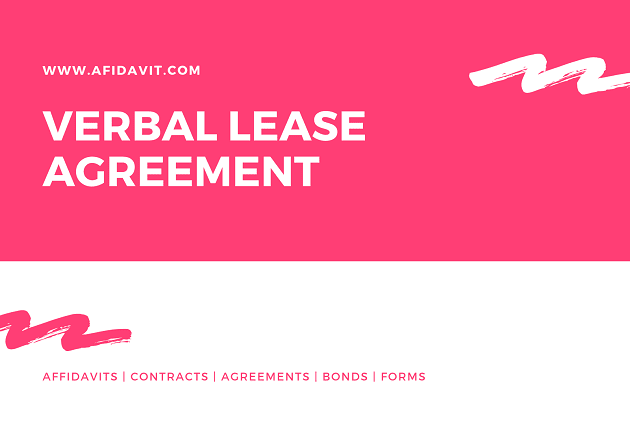Verbal Lease Agreement – Verbal Agreements – Verbal Contract
Verbal Lease Contract - Verbal Lease Agreements

The Verbal Lease Agreement is a contractual arrangement of an agreement between a lessee (user) and the lessor (asset owner) for the use of the asset against the fee as per agreed verbal lease terms.
What are the Requirements of a Verbal Contract?
A verbal contract should have five basic elements to be legally binding:
- The Presence of a valid offer by one party.
- The acceptance of the offer by the other party.
- Both parties should have the capability to enter into an agreement.
- The subject matter of the contract should be lawful.
- There should be mutuality of obligation.
Is a Verbal Lease Agreement Legally Binding?
In most of the cases, a verbal lease agreement is legally binding. The only condition for its being legally binding is that the offer should be accepted by the other party immediately. Even, the verbal changes in the agreement are also legally binding if both the contracting parties agree to these. However, there are some such verbal agreements as are not legally binding.
Do Verbal Agreements stand up in Court?
A verbal agreement is equally forceful in the court of law as a written agreement. The only problem is to reveal the terms of an agreement and you will have to arrange witnesses for presenting these terms before the court.
Can I Sue over a Verbal Agreement?
A verbal agreement can be sued in a court of law just like a written agreement. This is because the court needs the terms of the agreement which becomes difficult to prove in a verbal agreement. However, if you have witnesses to prove the terms of the agreement, you can sue a verbal agreement.
Is a Recorded Verbal Agreement Legally Binding?
A recorded verbal lease agreement is also legally binding and is more effective than a verbal agreement because you have recordings of all the terms and conditions agreed upon while entering into a contract. This recorded verbal agreement evidence is more authentic than witnesses if the agreement fulfills all other conditions of being valid.
